It’s the middle of the day, and you’re absolutely starving. Dinner’s only a couple of hours away, but unsure if you can last that long with the ravenous feeling in your belly, you decide to have a snack.
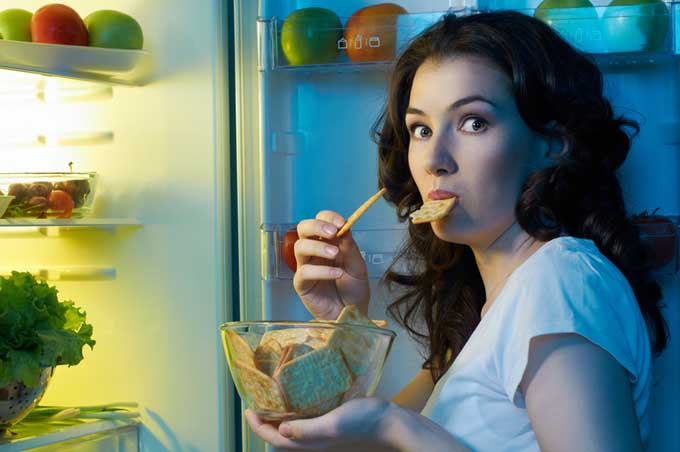
Then you wonder if you’re doing more harm than good. Is snacking bad for your health? Consulting the internet, you find that the answer isn’t so simple.
Some leading nutrition experts say yes, snacking is harmful to one’s health, causing many people to consume far too many calories, and elevating blood sugar levels as well as HDL (bad) cholesterol.
However, just as many experts believe the healthiest way to eat is to consume many small snack-like meals throughout the day.
So which is correct? Should you go hungry to save yourself from consuming extra calories? Or go ahead and join the 94 percent of Americans that snack at least once daily and eat so you don’t feel deprived and overeat later?
I believe the answer lies in intuitive eating.
What Is Intuitive Eating?
The concept of intuitive eating, developed by registered dietitian Evelyn Tribole and registered dietitian nutritionist Elyse Resch, involves creating a healthy relationship with food.
Once you establish this, you will learn to recognize your body’s hunger cues and consume food only when you are truly hungry.
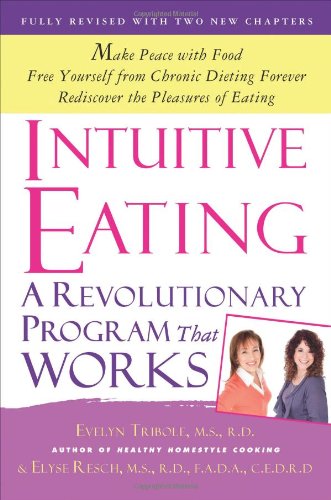
According to Tribole and Resch, authors of Intuitive Eating: A Revolutionary Program That Works, principles of healthy eating include:
1. Getting Rid of a Dieting Mindset
According to Australian website Eating Disorders Victoria, “Dieting is the greatest risk factor for the development of an eating disorder.”
Compulsive overeating, or binge eating disorder, may drive one’s desire to constantly snack.
2. Making Peace with Eating
Allow yourself permission to eat without restriction (i.e. no “good” or “bad” foods).
If you have a craving for ice cream, consume it without guilt. You’ll find as you follow the steps of intuitive eating that your cravings for empty-calorie foods are reduced.
3. Discovering How to Feel Satisfied, So You Don’t Overeat
This can be accomplished by enjoying the moment while you eat, and eating what you want without making yourself feel bad for your choices.
4. Respecting Your Body
Throw your expectations of what you think it should look like out the window, and accept it for what it is.
5. Honoring Your Feelings Without Turning to Food
Instead of using food as an outlet to reduce your stress and anxiety, the authors suggest dealing with your emotions in a healthier manner.
But does the anti-diet intuitive eating approach work? Studies have found that lower body mass index (BMI) and lower cortisol (stress hormone) levels as well as an improved body image and a better relationship with food result from intuitive eating.
What Do Other Experts Recommend?
In-house dietitian from HelloFresh.com, Rebecca Lewis, had this to say about whether snacking between meals should be avoided:
“Snacking can serve the purpose of providing additional energy throughout the day and provide any missing nutrients not found in the larger meals (especially fruits and vegetables).
“Also, the snacks can be a way to tide hunger so that [you] don’t overeat at the next main meal of the day. What’s important to remember is to choose a healthy snack.”
She mentioned that great snack foods should fit the following criteria:
- Foods of approximately 250 calories or less that are a balance of carbs and protein, with at least 3 grams of fiber per serving.
- The focus should be on eating snacks made up of mostly fruits and veggies (i.e. healthy carbs) with a quality source of protein (like nuts and nut butters, dairy products, and hard-boiled eggs).
- Avoid foods with sugar as the primary ingredient, which would be listed first on the label.
“My recommendation is for people to experiment with both and see what works for them:
“Which keeps you more satisfied? Which results in less cravings? Which is more effective for you in limiting total calorie intake per day? What ultimate results do you see in each situation in terms of health goals?”
This follows the same concept as the intuitive eating approach of listening to your body.
How Can I Become an Intuitive Eater?
If you think intuitive eating is the way to go when you’re trying to decide whether or not to be a snacker, the next step is to start implementing the main ideologies of the program. The great thing about intuitive eating is that it’s all about learning to listen to and trust your body.

So where do you begin? You can become an intuitive eater by listening to and trusting your body to help you decide. Start small and go at your own pace; there is no right or wrong while learning to trust your natural instincts.
You may feel better focusing on feelings that you associate with eating, trying to find more constructive ways to release your anxiety or other emotions that make you want to eat. You may choose to focus on the sensations of hunger, tuning into the physiological changes that occur as you perceive an emptiness in your belly and the feelings you get when you eat slowly.
Though it sounds completely, well, intuitive, intuitive eating is not necessarily easy. Especially if you’ve spent years practicing the opposite. But patience will help you tune into your body when it comes to eating, as well as honoring your body when it comes to other healthy practices.
It may take a while to become an intuitive eater. You may have to try several times before you get the hang of it, and that’s okay.
Or you may find success implementing all of the steps quickly, and that’s okay too. Just keep an open mind and don’t get frustrated with yourself along the way. It’s all part of the learning and growing process.
Does Intuitive Eating Always Work?
Intuitive eating is a great way to be successful in changing your dietary and snacking habits. Maintaining a healthy perspective is essential with intuitive eating.
There are many reasons why it fails for some people, but knowledge is power – it can help you become more aware of your situation and take control so you’re more likely to accomplish your dietary goals.
Diet Mentality
It’s important to not get caught up in the “rules” of eating intuitively or it can turn into a diet mentality. However, this kind of mindset can cause you to not only not lose weight but can actually cause weight gain if you start restricting calories and don’t provide your body with adequate sources of energy.
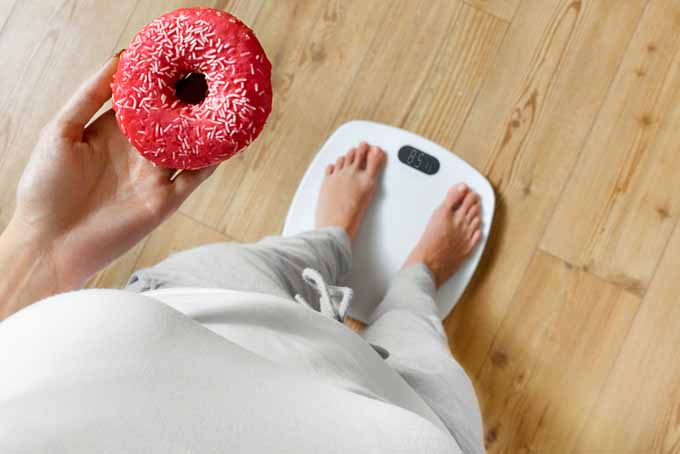
This has a physical effect on your body, causing cravings for quick fuel sources (foods high in sugar) and sending you into “starvation mode,” a metabolic slowdown that occurs with a drastic reduction in caloric intake. Starvation mode helps your body to preserve expendable energy by holding onto fat stores.
There is a psychological effect from food restriction as well. When you don’t allow yourself to consume certain items, it can intensify cravings. This often sends people into extreme binging, which can cause weight gain and alter your metabolism long term.
Underlying Health Conditions
There are many health conditions, whether they be known or undiagnosed, that may contribute to your constant desire to snack. A physical exam from your doctor along with any recommended diagnostic testing may help determine if a health condition is behind your munchies.
According to George Krucik, MD, MBA (healthline.com), conditions that cause an increased appetite include:
Binge-Eating Disorder
Yes, this is a real medical condition that causes you to continue eating even after you feel full or have eaten excessive amounts of food at meals or in between meals.
Diabetes
Those with type II diabetes often suffer from low incretin, a hormone that helps control blood sugar after you eat. An incretin shortage means that food leaves your stomach sooner after a meal, which means you won’t feel as satisfied.
Hyperthyroidism
An overactive thyroid, or hyperthyroid, affects how your cells use energy. This can cause you to consume more food in an effort to provide adequate levels of fuel for your cells.
Hypoglycemia
Most commonly found in diabetics, low blood sugar levels can stimulate your body to eat to help regulate insulin.
Nicotine Dependence
Smoking can cause you to turn to food to fill your time when you’re unable to smoke or to boost your “feel-good” hormones as dopamine levels drops in between cigarettes.
Psychological Conditions
This includes anxiety, depression including postpartum depression, and seasonal affective disorder (a.k.a. SAD).
Prescribed Medications
Certain medicines, including corticosteroids used to treat pulmonary and other inflammatory conditions, can play a role in your desire to eat often.
Among side effects Cyproheptadine for example, an antihistamine that’s commonly prescribed to treat seasonal allergies and mild hives, are appetite changes and weight gain.
Tricyclic antidepressants, though not as frequently used as they were previously, can increase the appetite and lead to weight gain. Amitriptyline, doxepin, and imipramine are the most likely of all tricyclic antidepressants to do so.
Health conditions, medications, and your dieting state of mind will affect any sort of dietary changes you try to make, whether it be intuitive eating or a specific diet program for weight loss.
Like with any other type of health change, talking to a medical professional can help you uncover things that may stand in your way of living a healthier, happier life.
Bottom Line
As a health coach, I promote the intuitive eating approach and have seen people have success when implementing the practice for dietary changes.
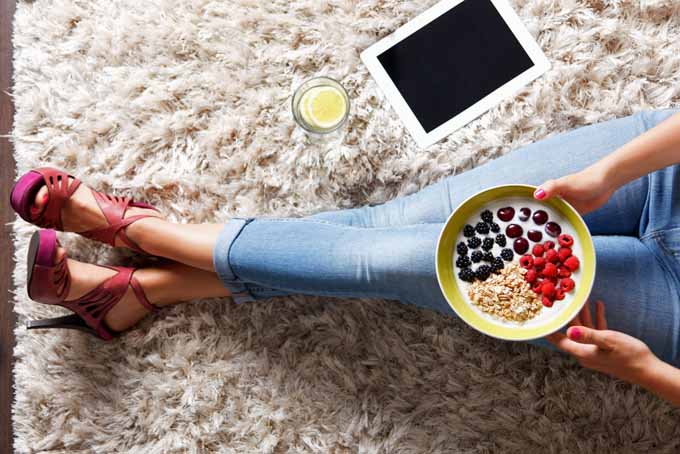
I believe the key to avoiding the trap of overeating that so many of us fall into is to listen to your body.
If you feel hungry, eat.
It’s also important to determine why it is that you’re hungry – is it boredom? Is it harder to feel satisfied because you’ve been overeating, so you need to eat more? Is there an emotional hunger that you’re trying to fill with tangible food?
If you’re eating for the wrong reasons such as boredom or stress (that’s up to 40 percent of Americans!), try to find a positive replacement for food to fill the void.
The staff at Foodal are not medical professionals and this article should not be construed as medical advice. Foodal and Ask the Experts, LLC assumes no liability for the use or misuse of the material presented above. Always consult with a medical professional before changing your diet or using supplements or manufactured or natural medications.
Blueberry yogurt popsicle photo by Kendall Vanderslice. 73 healthy snack composite photo by Mike Quinn, All other photos via Shutterstock.
About Tiffany Boutwell
Tiffany Boutwell is a Certified Nutritional Consultant, Holistic Health Practitioner, and owner of Natural Apple Holistic Health. Tiffany believes chronic illness stems from improper nutrition, and that a diet rich in whole foods can help people to be free from the undesirable effects of the Standard American Diet. She resides on a farm in Kentucky with her family where she enjoys reading, yoga, and writing. Tiffany has authored an e-cookbook and health articles in various publications.

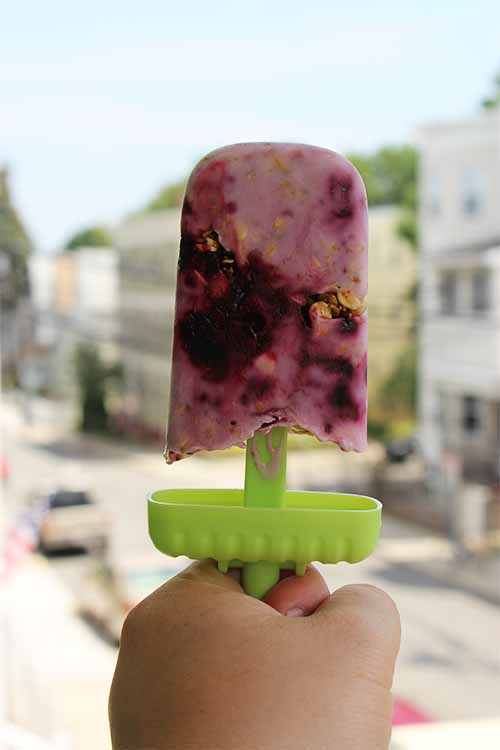
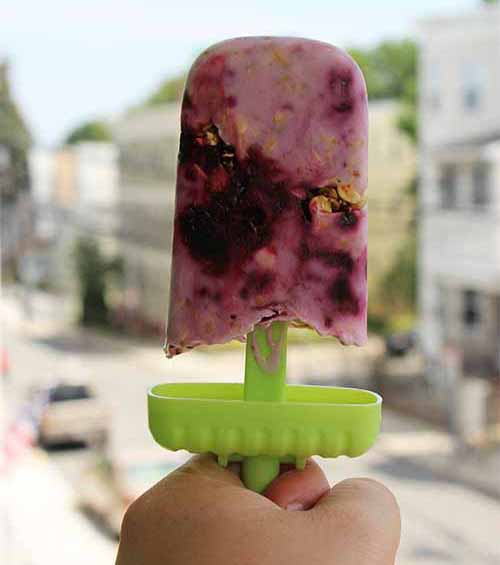
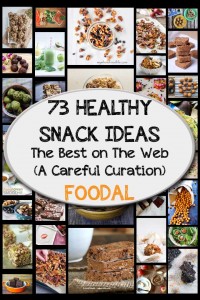
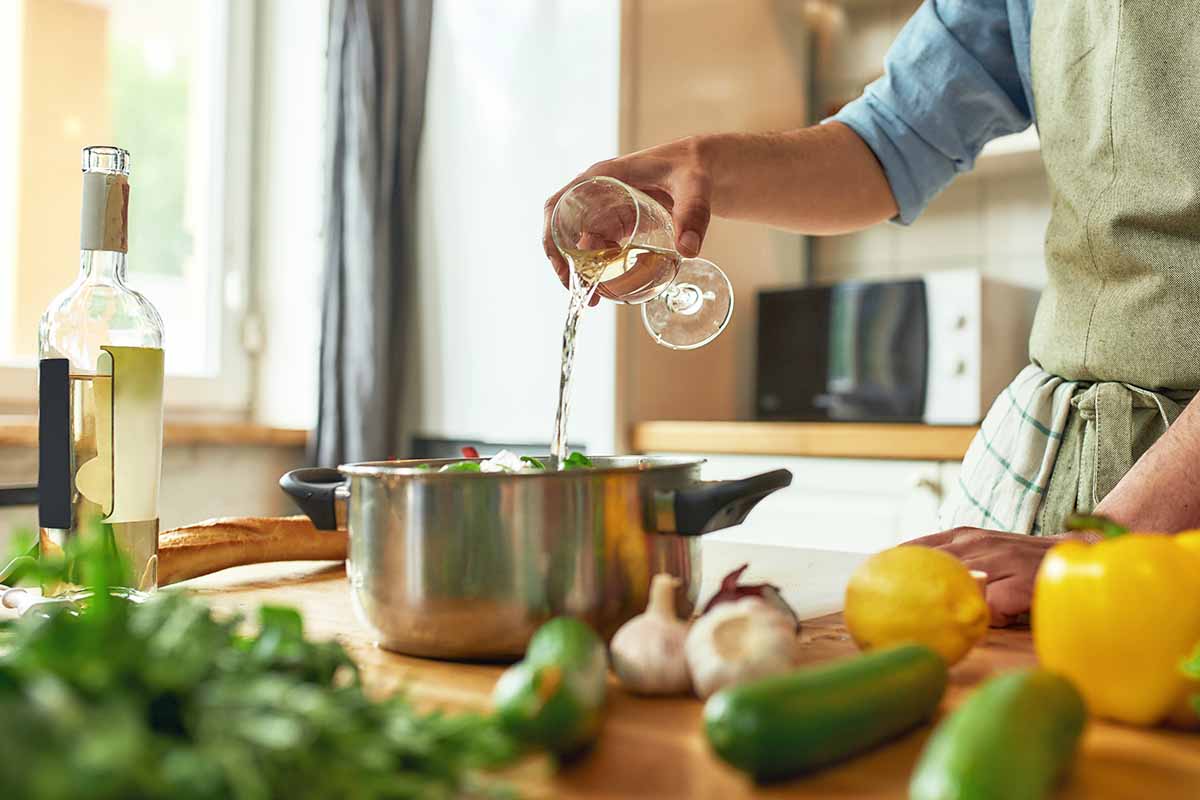

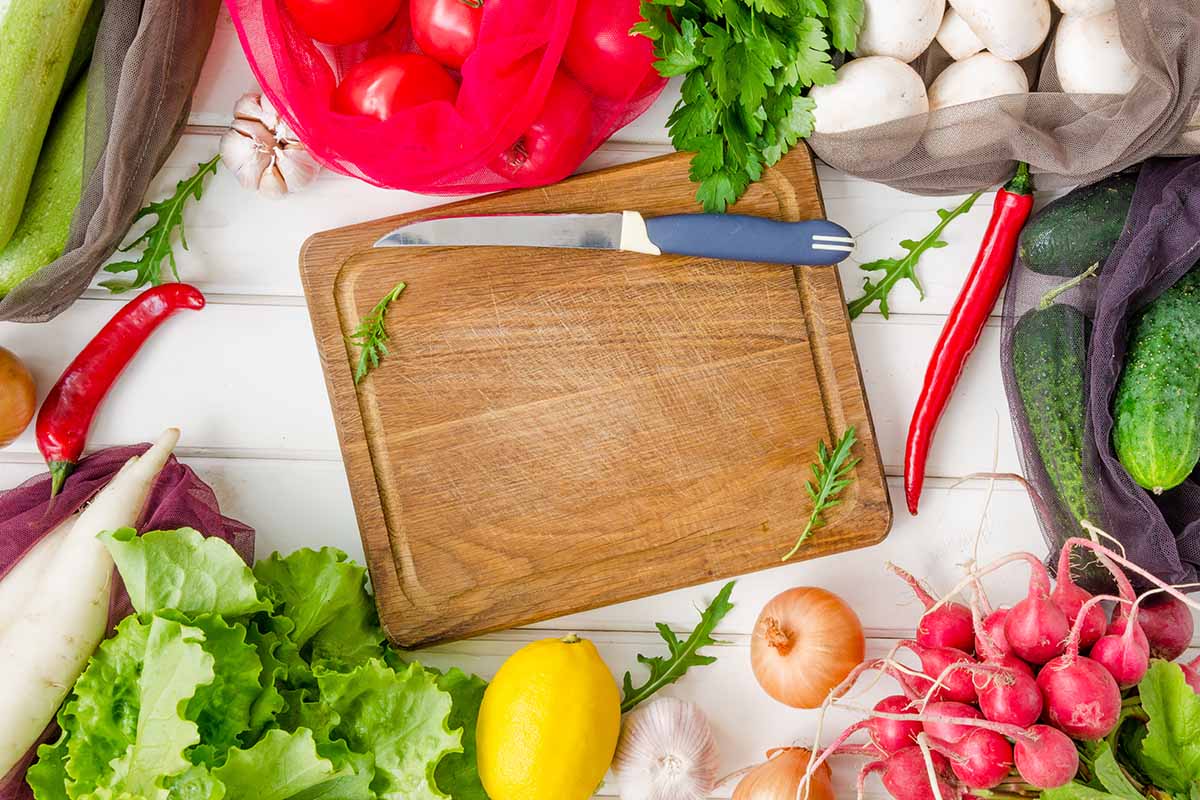
Well this is probably my biggest downfall when it comes to diets and sticking to a routine, but I am pretty sure that I am not alone there. I would like to think that I have gotten a little bit better with time, but then again there are still times when I slip up, and in a big way. It all comes down to having the things on hand, and if I have a piece of cake or something leftover, chances are I will snag it. That said, though, I am always look for tips on how to avoid it, so thank for sharing.
I’m definitely an intuitive eater. I have never been one for counting calories and stuff, and I never deprive myself of food. Family and friends wonder how I can be so small and eat as much as I do. Besides probably genetics, I think it’s because I live a pretty active lifestyle and the kind of food I put in my body. Don’t get me wrong, I enjoy my junk food from time to time, but there’s nothing like a bowl of fruit to satisfy a craving for something sweet.
I had anorexia when I was younger, and that messed up my eating habits for quite some time. I had to re-learn how to eat, and how to do it in a healthy way. The information my dietitian gave me was very similar to this article. It makes a lot of good points. I don’t always eat this way, and there are times I find myself slipping back into the habit of classifying a food as “bad” or “good” because of the calorie content or how much fat it has. This is actually really good advice for everyone, especially for people who have eating disorders.
I’ve always thought that if you feel hungry, your body is telling you it needs some nutrition, and therefor you should eat. However, what you decide to eat is very important. Lean protein and non-starchy vegetables are always a fantastic option. Fruit is also usually a good choice, however, due to some fruits containing either a late amount of sugar, or a large amount of acid, I find its best to avoid eating them right before bed or in the middle of the night to avoid both issues with digestion and trouble sleeping.
I have to say that it always happens to me every single night, that’s why I always go out in the day time to buy some snacks for the night. I get really hungry and well, a snack in the night is not going to kill me whatsoever, I think so. I really found this article really helpful, especially because there are many people in the world that do the same thing, thank you for sharing this!
I do snack, and I don’t think it’s bad as long as the snacks are healthy ones and the snacking is controlled. The worse thing to do if you are hungry is not to eat and wait for the next meal because you don’t want to snack. If the body needs food you should give the body some food. This is how diabetes creeps up, or binge eating because people are so hungry.
I used to try and not snack and then would feel faint and be unable to concentrate at work. That isn’t healthy, and as some people have a fast metabolism, they will need to snack. There isn’t a rule for everyone, as each person has a different lifestyle with varying metabolic rates.
It really is all about what you decide to snack on – a large study that jumps to mind is that if you consume a whole orange half an hour before a meal, you will naturally consume fewer calories at the meal. However, replace that whole orange with a glass of orange juice instead (liquid calories and quick absorbing sugar) you will consume more when you sit down to eat. It’s all about fiber, making sure that your body has some genuine substance to work on and which stabilizes your blood sugar rather than causing a quick spike followed by a slump. And anything that contains fiber – i.e. fruits and veggies – is going to contain valuable nutrients, vitamins, minerals and phytonutrients too – so when it comes to them – I say snack away with abandon!
I’m definitely with the majority of people who eat snacks between meals, and I think that I don’t pay attention to it because it seems to be okay, or at least physically, I do not suffer from overweight or have health issues related to this.
I also haven’t heard or tried intuitive eating, but it sounds great to really be conscious about what you’re eating and why are you eating it, sometimes it can even have emotional backgrounds.
This was a really informative and interesting post, thanks for sharing! :).
When I was 12, my pediatrician put me on a diet. Try to tell a 12 year old they can’t eat sweets or junk food! Pure torture! Anyhow, alongside with the diet I was put through, the doctor told me I HAD to eat small portions between meals, to control my apetite in my main meals. It did work, I lost the weight I needed to lose, and currently, I am a normal weight adult. I think the problem with snacking come with the portions. At the end of the day, we may get carried away with what we want to eat.
I am a snacker, and I snack inbetween meals. Though, I try not to indulge unless I feel as if I am starving, and I have a healthy snack in mind. If it is something unhealthy, I will eat a little and leave it alone, except on the occasion that I eat the whole bag (cookies, chips) which is rare, maybe once a month!
Off the top of my head, this is kind of difficult for us in my country to do. We’re truly a snack-eating bunch. It’s not so much the snack eating that’s given prominence, but the little chitchats that happens in between those little bites. So, yeah even if some people aren’t hungry, they go along with the crowd during ‘snack time’ just not to be alone in their cubicle at work. Snack time is like bonding time. Personally, if I’m on my own, I think I’m an intuitive eater. While I love to eat a lot, I more often eat only when I’m hungry. My mother often gets frustrated with me growing up because I don’t eat on time, I only do so when hungry, and yeah it could be detrimental as I end up eating more than I need to. At work before, I tend to finish task that I end up making a snack time into a full meal thing just to be recharged, haha!
This is a nice article. I think that my doctor told me that it was ok and required to snack with diabetes 2 especially with the glyburide. I have been transitioning to a healthy diet and the diet mind set really is the worst because I might feel like I’m accomplishing something by starving myself but then I order a pizza and eat the whole thing and that’s not even remotely healthy.
Wow, this is filled with great info. That also sounds like a really good book.
I have low blood sugar, so I’m really better off eating throughout the day than waiting for 3 larger meals. It can be a pain, especially if you don’t have something healthy that’s ready to go all the time. Planning is a large part of it, so I’m not tempted to snack on junk in a pinch.
I may have a look at the book. It sounds like an entirely reasonable approach to healthy eating. Thanks.